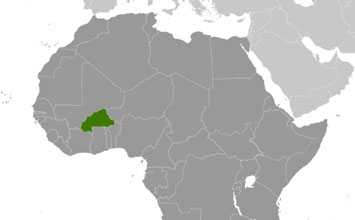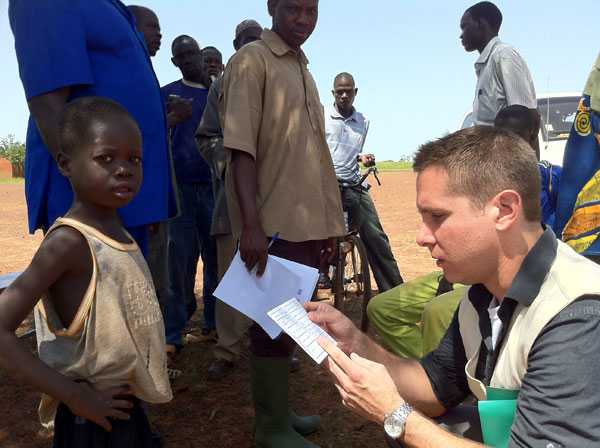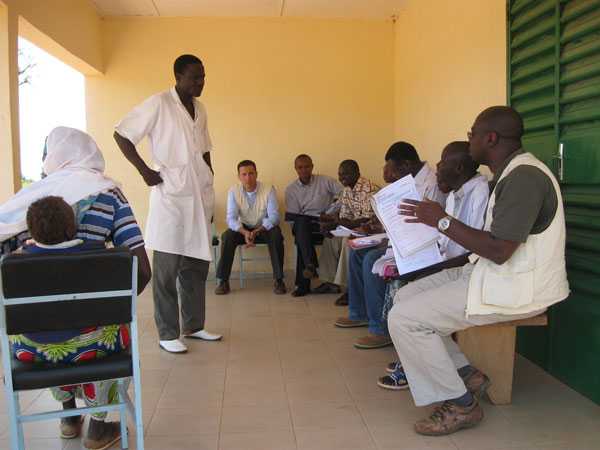Polio and Measles
CDC provides technical support to Burkina Faso for polio eradication and measles elimination activities. In 2009 Burkina Faso experienced its largest measles outbreak on record with more than 50,000 reported cases. CDC provided assistance with the outbreak epidemiology and later helped to design and implement studies to investigate the risk factors associated with contracting measles during the outbreak. CDC has also offered to provide technical assistance for a November 2014 campaign in Burkina Faso to introduce combined measles-rubella vaccine.
Although wild poliovirus has not been detected in Burkina Faso since October 2009, the country is considered at moderate risk for polio based on immunization rates, surveillance, and proximity to countries with recent outbreaks (Cote d’Ivoire, Mali, and Niger). Burkina Faso continues to conduct preventive nationwide polio vaccination campaigns to maintain the immunity of its population under 5 years old. For recent nationwide polio vaccination campaigns, CDC provided assistance with the planning, implementation, and supervision of campaign activities.
Although CDC does not maintain an office in Burkina Faso, CDC employee Jim Ting is detailed to the immunization team in the WHO sub-regional office based in Ouagadougou and CDC funds a national surveillance officer through the WHO cooperative agreement (co-ag). In addition, STOP polio teams rotate through Burkina Faso regularly.
Rotavirus Surveillance
CDC works collaboratively with the MoH and WHO to support the development and implementation of hospital-based sentinel site surveillance in Burkina Faso for rotavirus. Since December 2013, Burkina Faso has intensified efforts to implement rotavirus surveillance. Four surveillance sites are now functioning and enrolling patients.
Meningitis
CDC’s Meningitis and Vaccine Preventable Diseases Branch (MVPDB) collaborates with the MoH and partners on strengthening capacities for meningitis surveillance, vaccine effectiveness and impact evaluation. In addition to approximately $200,000 provided annually to the MoH via a DLM-MoH/CDC memorandum of agreement, funds are available from the CDC/WHO regional co-ag to support meningitis activities in Burkina Faso. In addition, CDC provides equipment and consumables to the national laboratory.
In 2010, a new meningococcal serogroup A conjugate vaccine (MenAfriVac), was introduced countrywide targeting more than 11 million people 1 to 29 years old. Surveillance data from Burkina Faso demonstrated a substantial immediate impact on the disease with no cases of serogroup A meningococcal meningitis occurring among vaccinated people in Burkina Faso. However, further data are required to assess MenAfriVac’s long-term impact and to evaluate the need for and effectiveness of future vaccines. MVPDB is committed to continued collaboration with Burkina Faso in building and sustaining capacity for disease surveillance. MenAfriNet is a Bill and Melinda Gates Foundation funded project to evaluate the impact of MenAfriVac throughout Africa’s meningitis belt, including Burkina Faso. Future plans for Burkina Faso include implementation of MenAfriNet, to guide research on new vaccines and strategies to optimize the impact of existing vaccines.
Pneumococcal conjugate vaccine was introduced in Burkina Faso in 2013 to prevent meningitis. CDC is supporting ongoing studies evaluating the effectiveness of the vaccine and implementation of a laboratory assay used to serotype Streptococcus pneumonia.






 ShareCompartir
ShareCompartir


